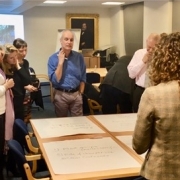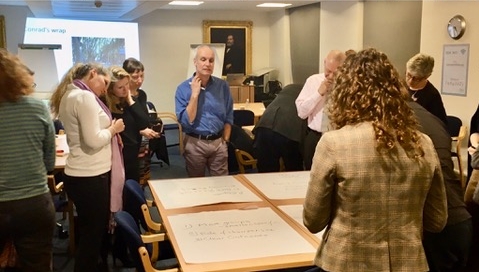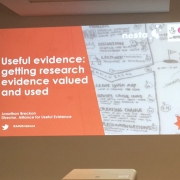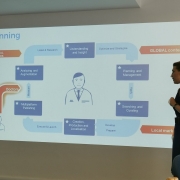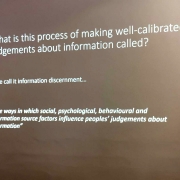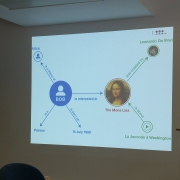November 2020 Seminar: The framework and ISO standards for Collaboration, KM and Innovation and how these might be integrated into your organisation
Summary
This seminar, affectionately know as the Two Ronnie’s show, aimed to introduce the Five dimensions Framework of Collaboration, Knowledge and Innovation. They gave an overview of the collaboration, knowledge management and innovation published standards ISO44001, ISO 30401, ISO 56002. This was of great interest to the gathered crowd by establishing the relationships there. They then tackled how it would be valuable to do more to integrate these into a more interdependent, holistic and integrated management system. They talked about the relevance of systems thinking. This was followed by some break out sessions where people could have focused discussions on the issues raised. The meeting finished with a summary from the two Rons.
Speakers
Ron Young is the founder of Knowledge Associates International, a knowledge management consulting and solutions group based at St Johns Innovation Centre, Cambridge U.K. He is acknowledged as a leading international expert and thought leader in strategic knowledge asset management and innovation. He specializes in knowledge driven results for organizations. He advised and assisted the UK DTI Innovation Unit in the production of the UK Government White Paper ‘UK Competitiveness in the Knowledge Driven Economy’ (1999).
He regularly provides keynote presentations and workshops at leading knowledge management and innovation conferences around the world. He has chaired for several years both the British Standards Institute (BSI) Knowledge Management Standards Committee and the European Knowledge Management Standards Committee.
He is a visiting lecturer for international business administration and global knowledge economy programs. He runs regular Knowledge Asset Management master classes at King’s College Cambridge University, UK. He is a consultant for the World Bank, Washington, USA, and for the European Commission, Joint Research Centre, Brussels.
He is currently developing knowledge management strategies and knowledge management & innovation conferences around the world. He has chaired for several years both the British Standards Institute (BSI) Knowledge Management Standards Committee and the European systems, and advising and assisting major multi-national corporations, international UN agencies, National governments, military, security, and professional institutions around the world. He was a lead consultant for the European Commission 2 Million euro ‘Know-Net’ project. He has joint authored seven books. His hobbies are flying, music, yoga and meditation, travel and philosophy.
Knowledge Associates – leverage the world’s knowledge (knowledge-associates.com)
Ron Donaldson is a self-employed knowledge ecologist working with methods and ideas from a range of disciplines such as problem solving, open innovation design thinking, collaborative community building through to using narrative frameworks to communicate complex ideas. He works closely with the Cognitive Edge project. Ron is a member of the NetIXK Committee and supports speakers at our seminars.
Time and Venue
November 26th at 2:30 pm on the Zoom platform. This is a virtual session.
Slides
Not available
Tweets
Blog
See our blog report: Framework and ISO standards for Collaboration, KM and Innovation
Study Suggestions
ISO/IEC 27001:2013 Information technology – Security techniques – Information security management systems – Requirements.
ISO 56001:2014 Asset Management
ISO 56002:2019 Innovation Management – Innovation Management System – Guidance
ISO 9001:2015 Quality Management Implementation Guide
ISO 44001:2017 Collaborative Business Relationship Management
ISO 30401:2018 Knowledge Management Systems – Requirements
Also a useful site for KM writing: http://www.nickmilton.com/2020/10/what-is-4th-enabler-forknowledge.html Nick Milton is a director of ‘Knoco’ an international firm of Knowledge Management Consultants. His website is a cornucopia of KM material. Incidentally, the ‘4th enabler’ for KM is ‘governance’.
The Systemic Design Group may be of interest: https//www.systemicdesign.group/empathy-talks/

